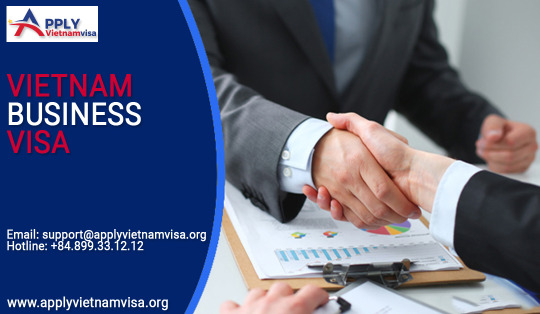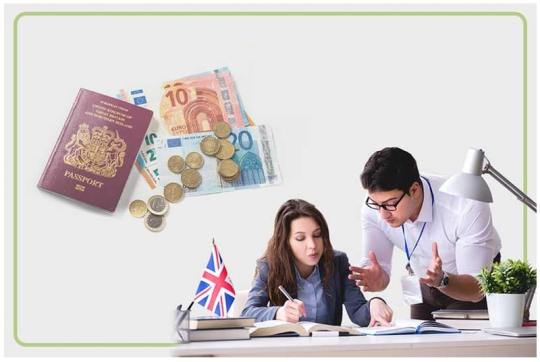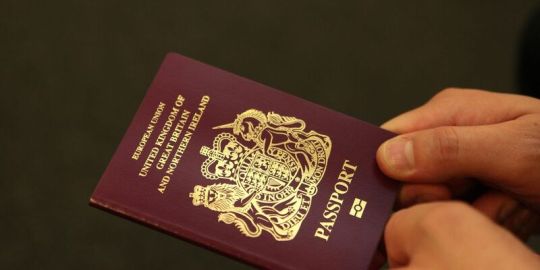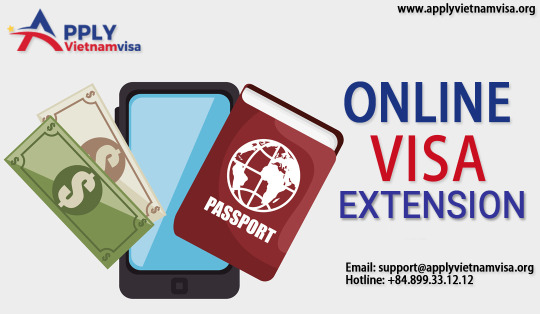#VietnamBusinessVisa
Text

Dreaming of working or doing business in Vietnam? We've got great news for you!
Foreign nationals without a valid working visa or temporary residence card can now easily get a short-term business visa for Vietnam. Whether it's for meetings, negotiations, or signing contracts, this visa has got you covered!
What do you need to get the Business Visa? Well, just the following-
A Vietnamese employer to sponsor your visa
Passport photos (4x6 cm or 2x2 inches)
Your valid passport
Let us make your Vietnam Business Visa application a breeze! Contact us at https://www.vietnam-visa-online.org/visa and start your journey today.
#vietnambusinessvisa#workinvietnam#businessvisaapplication#vietnamvisaonline#TraveltoVietnam#VisaApplicationMadeEasy
0 notes
Text

If you're planning a trip to Vietnam, you may need to obtain a visa before you can enter the country. Fortunately, Vietnam offers an electronic visa (eVisa) program that allows eligible visitors to apply for a visa online. However, sometimes eVisa applications can be rejected. In this article, we'll explore what you should do if your eVisa application for Vietnam is rejected.
If your eVisa application for Vietnam is rejected, you'll receive a notification by email from the Vietnamese immigration authorities. The notification will explain the reason why your application was rejected and may provide instructions on how to appeal the decision or apply for a different type of visa.
The most common reasons for eVisa rejections include incomplete or inaccurate information, missing documents, or not meeting the eligibility requirements. If your application was rejected due to incomplete or inaccurate information, you may be able to correct the mistakes and resubmit your application. However, if your application was rejected due to missing documents or not meeting the eligibility requirements, you may need to apply for a different type of visa.
If you decide to appeal the decision or apply for a different type of visa, you should follow the instructions provided in the rejection notification carefully. This may involve providing additional documents or information, filling out a new application form, or submitting an appeal letter. The Vietnamese immigration authorities may also require you to pay an additional fee or visit a Vietnamese embassy or consulate in person.
It's important to note that the visa application fee is non-refundable, even if your application is rejected. Therefore, it's important to double-check all the information and documents before submitting your application to avoid any potential delays or rejections.
In conclusion, if your eVisa application for Vietnam is rejected, you'll receive a notification by email from the Vietnamese immigration authorities. The notification will explain the reason why your application was rejected and may provide instructions on how to appeal the decision or apply for a different type of visa. Make sure that you follow the instructions provided carefully, double-check all the information and documents before submitting your application, and be prepared for potential delays or rejections. With the right visa in hand, you can enjoy your trip to Vietnam without worrying about visa formalities.
#eVisaVietnam#VietnameVisa#VietnamTravel#VietnamTourism#VietnamVisaApplication#VisaFreeTravel#VisaOnArrival#VietnamEmbassy#VietnamConsulate#VietnamVisaServices#TravelVietnam#VisitVietnam#VietnamOnlineVisa#VietnamTouristVisa#VietnamBusinessVisa#VietnamImmigration#VietnamEntryRequirements#VietnamCustoms#VietnamTravelTips#VietnamVisaApproval#VietnamVisaProcess#VietnamVisaInformation#VietnamVisaRequirements#VietnamVisaFee#VietnamVisaValidity#VietnamVisaExemption#VietnamTouristAttractions#VietnamCulture#VietnamHistory#VietnamHoliday
0 notes
Photo

VIETNAM BUSINESS VISA - FOR TEXTILE INDUSTRY IN VIETNAM
0 notes
Text

Vietnam is a popular tourist destination that attracts millions of visitors every year. Whether you're planning a backpacking trip or a luxury vacation, you'll need a visa to enter the country. In recent years, Vietnam has introduced an electronic visa (eVisa) program, making it easier for travelers to obtain a visa without having to visit a Vietnamese embassy or consulate in person. In this article, we'll explore what an eVisa for Vietnam is and how to obtain one.
An eVisa for Vietnam is an electronic travel authorization that allows visitors to enter Vietnam for tourism or business purposes. This type of visa is only available to citizens of certain countries, and the list of eligible countries may change from time to time. Before applying for an eVisa, you should check if your country is eligible for this type of visa.
To apply for an eVisa for Vietnam, you need to submit an online application form and pay the visa fee. The application form requires you to provide personal information such as your name, date of birth, passport details, and travel dates. You'll also need to upload a recent passport-sized photo and a scanned copy of your passport's information page.
Once you submit your application, it will be reviewed by the Vietnamese immigration authorities. If your application is approved, you'll receive an eVisa by email. You should print out a copy of the eVisa and carry it with you when you travel to Vietnam. You'll need to show the eVisa to the immigration officers at the port of entry, along with your passport and other required documents.
The processing time for an eVisa for Vietnam is usually around 3 to 5 working days, but it can take longer during peak travel seasons. You should apply for the eVisa at least a few weeks before your planned travel dates to allow enough time for processing.
The cost of an eVisa for Vietnam varies depending on the country you're from, but it's generally cheaper than a traditional visa obtained from a Vietnamese embassy or consulate. The fee is paid online when you submit your application, and it's non-refundable even if your application is rejected.
An eVisa for Vietnam is valid for a single entry only and allows you to stay in the country for up to 30 days. If you want to stay longer or make multiple entries, you'll need to apply for a different type of visa.
In conclusion, an eVisa for Vietnam is a convenient and cost-effective way to obtain a visa for tourism or business purposes. It's important to check if your country is eligible for this type of visa and to apply well in advance of your travel dates. With an eVisa in hand, you can enjoy your trip to Vietnam without worrying about visa formalities.
#eVisaVietnam#VietnameVisa#VietnamTravel#VietnamTourism#VietnamVisaApplication#VisaFreeTravel#VisaOnArrival#VietnamEmbassy#VietnamConsulate#VietnamVisaServices#TravelVietnam#VisitVietnam#VietnamOnlineVisa#VietnamTouristVisa#VietnamBusinessVisa#VietnamImmigration#VietnamEntryRequirements#VietnamCustoms#VietnamTravelTips#VietnamVisaApproval#VietnamVisaProcess#VietnamVisaInformation#VietnamVisaRequirements#VietnamVisaFee#VietnamVisaValidity#VietnamVisaExemption#VietnamTouristAttractions#VietnamCulture#VietnamHistory#VietnamHoliday
0 notes
Text

If you're planning to visit Vietnam for tourism or business purposes, you'll need to obtain a visa. Vietnam offers an electronic visa (eVisa) program that allows eligible visitors to apply for a visa online. However, to obtain an eVisa for Vietnam, you'll need to meet certain requirements. In this article, we'll explore the requirements for obtaining an eVisa for Vietnam.
Nationality The first requirement for obtaining an eVisa for Vietnam is that you must be a citizen of a country that is eligible for this type of visa. The list of eligible countries is subject to change, so you should check the official website of the Vietnamese immigration authorities for the latest updates.
Passport You must have a passport that is valid for at least 6 months from your planned arrival date in Vietnam. Your passport should also have at least two blank pages for the visa stamp.
Photo You'll need to provide a recent passport-sized photo (white background) when applying for an eVisa for Vietnam. The photo should be taken within the last six months and show your full face with no hats or sunglasses.
Application form To apply for an eVisa for Vietnam, you'll need to complete an online application form. The form requires you to provide personal information such as your name, date of birth, passport details, and travel dates. You'll also need to upload a scanned copy of your passport's information page and a recent passport-sized photo.
Visa fee The visa fee for an eVisa for Vietnam varies depending on your nationality. You can pay the fee online using a credit or debit card.
Purpose of visit You'll need to specify the purpose of your visit to Vietnam when applying for an eVisa. You can apply for a tourist or business eVisa, depending on the nature of your trip.
Length of stay An eVisa for Vietnam allows you to stay in the country for up to 30 days. If you want to stay longer or make multiple entries, you'll need to apply for a different type of visa.
Health requirements Vietnam may require certain health documents depending on your country of origin. For example, visitors from countries with a high risk of yellow fever must present a yellow fever vaccination certificate.
In conclusion, obtaining an eVisa for Vietnam requires meeting several requirements, including nationality, passport validity, a recent photo, completing an online application form, paying the visa fee, specifying the purpose of your visit, and meeting health requirements. Make sure you check the official website of the Vietnamese immigration authorities for the latest updates and requirements. With an eVisa in hand, you can enjoy your trip to Vietnam without worrying about visa formalities.
#eVisaVietnam#VietnameVisa#VietnamTravel#VietnamTourism#VietnamVisaApplication#VisaFreeTravel#VisaOnArrival#VietnamEmbassy#VietnamConsulate#VietnamVisaServices#TravelVietnam#VisitVietnam#VietnamOnlineVisa#VietnamTouristVisa#VietnamBusinessVisa#VietnamImmigration#VietnamEntryRequirements#VietnamCustoms#VietnamTravelTips#VietnamVisaApproval#VietnamVisaProcess#VietnamVisaInformation#VietnamVisaRequirements#VietnamVisaFee#VietnamVisaValidity#VietnamVisaExemption#VietnamTouristAttractions#VietnamCulture#VietnamHistory#VietnamHoliday
0 notes
Text

Vietnam is a popular destination for tourists and business travelers, and if you're planning a trip to the country, you'll need a visa. Fortunately, Vietnam offers an electronic visa (eVisa) program that makes it easier for eligible visitors to obtain a visa without having to visit a Vietnamese embassy or consulate in person. One of the most common questions about the eVisa for Vietnam is how much it costs. In this article, we'll explore the cost of an eVisa for Vietnam.
The cost of an eVisa for Vietnam varies depending on your nationality. In general, the fee for a tourist eVisa is cheaper than a business eVisa. As of 2023, the fee for a tourist eVisa for most eligible countries is $25 USD, while the fee for a business eVisa is $50 USD. However, this fee is subject to change, and you should check the official website of the Vietnamese immigration authorities for the latest updates.
The eVisa fee is paid online when you submit your application, and it's non-refundable even if your application is rejected. You can pay the fee using a credit or debit card, and the payment is processed securely through the Vietnamese immigration website.
It's important to note that the eVisa fee is only one of the costs associated with obtaining a visa for Vietnam. You may also need to pay for additional services, such as express or rush processing, depending on your travel plans. For example, if you need your visa urgently, you may be able to apply for an expedited processing service for an additional fee.
Additionally, you may need to budget for other expenses, such as transportation, accommodation, and food, during your stay in Vietnam. These costs can vary depending on your travel style and budget.
In conclusion, the cost of an eVisa for Vietnam varies depending on your nationality, with the fee for a tourist eVisa generally being cheaper than a business eVisa. Make sure you check the official website of the Vietnamese immigration authorities for the latest updates and fees. With an eVisa in hand, you can enjoy your trip to Vietnam without worrying about visa formalities.
#eVisaVietnam#VietnameVisa#VietnamTravel#VietnamTourism#VietnamVisaApplication#VisaFreeTravel#VisaOnArrival#VietnamEmbassy#VietnamConsulate#VietnamVisaServices#TravelVietnam#VisitVietnam#VietnamOnlineVisa#VietnamTouristVisa#VietnamBusinessVisa#VietnamImmigration#VietnamEntryRequirements#VietnamCustoms#VietnamTravelTips#VietnamVisaApproval#VietnamVisaProcess#VietnamVisaInformation#VietnamVisaRequirements#VietnamVisaFee#VietnamVisaValidity#VietnamVisaExemption#VietnamTouristAttractions#VietnamCulture#VietnamHistory#VietnamHoliday
0 notes
Text

Vietnam is a popular destination for travelers, and if you're planning a trip to the country, you'll need a visa. Fortunately, Vietnam offers an electronic visa (eVisa) program that makes it easier for eligible visitors to obtain a visa without having to visit a Vietnamese embassy or consulate in person. One of the most common questions about the eVisa for Vietnam is how long it's valid for. In this article, we'll explore the validity period of an eVisa for Vietnam.
An eVisa for Vietnam is valid for a single entry only and allows you to stay in the country for up to 30 days. This means that you can enter Vietnam once using your eVisa, and you can stay in the country for up to 30 days from your arrival date. If you plan to stay in Vietnam for longer than 30 days, you'll need to apply for a different type of visa.
It's important to note that the 30-day validity period of an eVisa for Vietnam starts from your arrival date, not from the date of issuance. This means that you should plan your travel dates accordingly and ensure that you enter Vietnam before the expiry date of your eVisa.
If you want to make multiple entries to Vietnam, you'll need to apply for a different type of visa, such as a multiple-entry visa. The eVisa for Vietnam only allows for a single entry, so if you leave the country and want to re-enter, you'll need to obtain a new visa.
It's also important to ensure that your passport is valid for at least six months from your planned arrival date in Vietnam, and that you have at least two blank pages for the visa stamp. If your passport expires before your planned departure date from Vietnam, you may not be allowed to enter the country.
In conclusion, an eVisa for Vietnam is valid for a single entry only and allows you to stay in the country for up to 30 days. Make sure that you plan your travel dates accordingly and enter Vietnam before the expiry date of your eVisa. With an eVisa in hand, you can enjoy your trip to Vietnam without worrying about visa formalities.
#eVisaVietnam#VietnameVisa#VietnamTravel#VietnamTourism#VietnamVisaApplication#VisaFreeTravel#VisaOnArrival#VietnamEmbassy#VietnamConsulate#VietnamVisaServices#TravelVietnam#VisitVietnam#VietnamOnlineVisa#VietnamTouristVisa#VietnamBusinessVisa#VietnamImmigration#VietnamEntryRequirements#VietnamCustoms#VietnamTravelTips#VietnamVisaApproval#VietnamVisaProcess#VietnamVisaInformation#VietnamVisaRequirements#VietnamVisaFee#VietnamVisaValidity#VietnamVisaExemption#VietnamTouristAttractions#VietnamCulture#VietnamHistory#VietnamHoliday
0 notes
Text

If you're planning a trip to Vietnam, you may need to obtain a visa before you can enter the country. Fortunately, Vietnam offers an electronic visa (eVisa) program that allows eligible visitors to apply for a visa online. One of the most common questions about the eVisa for Vietnam is how long it takes to process. In this article, we'll explore the processing time for an eVisa for Vietnam.
The processing time for an eVisa for Vietnam is usually around 3 to 5 working days. However, the actual processing time can vary depending on several factors, such as the volume of applications, peak travel seasons, and public holidays. During peak travel seasons, such as the summer months and holidays, it may take longer to process the eVisa due to the high volume of applications.
It's important to apply for the eVisa at least a few weeks before your planned travel dates to allow enough time for processing. You should also make sure that you have all the required documents and information ready before submitting your application to avoid any delays.
If there are any issues with your application, such as missing or incorrect information, the processing time may be longer. In some cases, the Vietnamese immigration authorities may require additional documents or information before they can process your application. In such cases, they will usually contact you by email or phone to request the required documents or information.
To avoid delays in processing, make sure that you double-check all the information and documents before submitting your application. You should also ensure that your passport is valid for at least six months from your planned arrival date in Vietnam, and that you have at least two blank pages for the visa stamp.
If you need your visa urgently, you may be able to apply for an expedited processing service for an additional fee. However, this service is not always available and may not be necessary unless you have an emergency.
In conclusion, the processing time for an eVisa for Vietnam is usually around 3 to 5 working days, but it can take longer during peak travel seasons or if there are issues with your application. Make sure that you apply well in advance of your planned travel dates, double-check all the information and documents, and be prepared for any potential delays. With an eVisa in hand, you can enjoy your trip to Vietnam without worrying about visa formalities.
#eVisaVietnam#VietnameVisa#VietnamTravel#VietnamTourism#VietnamVisaApplication#VisaFreeTravel#VisaOnArrival#VietnamEmbassy#VietnamConsulate#VietnamVisaServices#TravelVietnam#VisitVietnam#VietnamOnlineVisa#VietnamTouristVisa#VietnamBusinessVisa#VietnamImmigration#VietnamEntryRequirements#VietnamCustoms#VietnamTravelTips#VietnamVisaApproval#VietnamVisaProcess#VietnamVisaInformation#VietnamVisaRequirements#VietnamVisaFee#VietnamVisaValidity#VietnamVisaExemption#VietnamTouristAttractions#VietnamCulture#VietnamHistory#VietnamHoliday
0 notes
Text

Vietnam is a beautiful country with a rich culture, history, and stunning natural landscapes. If you're planning to visit Vietnam for tourism or business purposes, you'll need to obtain a visa. The good news is that Vietnam offers an electronic visa (eVisa) program, which makes it easier and more convenient for visitors to apply for a visa online. In this article, we'll explore the steps to apply for an eVisa for Vietnam.
Step 1: Check your eligibility The first step is to check if your country is eligible for an eVisa for Vietnam. The list of eligible countries is subject to change, so you should check the official website of the Vietnamese immigration authorities for the latest updates.
Step 2: Gather the required documents Before you start the application process, make sure you have the following documents ready:
A passport with at least 6 months validity and two blank pages.
A recent passport-sized photo (white background).
A valid email address to receive the eVisa.
Step 3: Complete the online application form To apply for an eVisa for Vietnam, you need to complete an online application form on the Vietnamese immigration website. The form requires you to provide personal information such as your name, date of birth, passport details, and travel dates. You'll also need to upload a scanned copy of your passport's information page and a recent passport-sized photo.
Step 4: Pay the visa fee The visa fee for an eVisa for Vietnam varies depending on your nationality. You can pay the fee online using a credit or debit card.
Step 5: Submit the application Once you've completed the application form and paid the visa fee, you can submit your application. The processing time for an eVisa for Vietnam is usually around 3 to 5 working days, but it can take longer during peak travel seasons. You should apply for the eVisa at least a few weeks before your planned travel dates to allow enough time for processing.
Step 6: Receive the eVisa If your application is approved, you'll receive an eVisa by email. You should print out a copy of the eVisa and carry it with you when you travel to Vietnam. You'll need to show the eVisa to the immigration officers at the port of entry, along with your passport and other required documents.
In conclusion, applying for an eVisa for Vietnam is a simple and straightforward process that can save you time and hassle. Make sure you check your eligibility, gather the required documents, complete the online application form, pay the visa fee, and submit your application. With an eVisa in hand, you can enjoy your trip to Vietnam without worrying about visa formalities.
#eVisaVietnam#VietnameVisa#VietnamTravel#VietnamTourism#VietnamVisaApplication#VisaFreeTravel#VisaOnArrival#VietnamEmbassy#VietnamConsulate#VietnamVisaServices#TravelVietnam#VisitVietnam#VietnamOnlineVisa#VietnamTouristVisa#VietnamBusinessVisa#VietnamImmigration#VietnamEntryRequirements#VietnamCustoms#VietnamTravelTips#VietnamVisaApproval#VietnamVisaProcess#VietnamVisaInformation#VietnamVisaRequirements#VietnamVisaFee#VietnamVisaValidity#VietnamVisaExemption#VietnamTouristAttractions#VietnamCulture#VietnamHistory#VietnamHoliday
0 notes
Text

Vietnam is a beautiful country with a rich culture, history, and stunning natural landscapes. If you're planning to visit Vietnam for tourism or business purposes, you'll need to obtain a visa. Vietnam offers an electronic visa (eVisa) program, which makes it easier and more convenient for eligible visitors to apply for a visa online. In this article, we'll explore whether it's possible to use an eVisa to enter Vietnam by land or sea.
Yes, you can use an eVisa to enter Vietnam by land or sea, as well as by air. The eVisa is a valid travel document that allows you to enter Vietnam through any of the country's international airports, seaports, or land border crossings that accept eVisa.
However, it's important to note that not all of Vietnam's border crossings accept eVisas. Some border crossings only allow for visas on arrival or traditional visas, so it's important to check the visa requirements for the specific border crossing that you plan to use before your trip.
When entering Vietnam by land or sea, you should make sure to have all the required documents and information ready, such as your passport, your eVisa, and any other relevant travel documents. You should also be aware of any entry requirements or restrictions that may apply, such as health screenings or quarantine measures.
It's important to note that when entering Vietnam by land or sea, the immigration procedures may be different from those at international airports. You may need to fill out additional forms, provide additional information, or undergo additional screenings. It's a good idea to check with the Vietnamese immigration authorities or your travel provider for the latest updates and information on the entry procedures at land border crossings and seaports.
In conclusion, you can use an eVisa to enter Vietnam by land or sea, as well as by air. However, not all of Vietnam's border crossings accept eVisas, so it's important to check the visa requirements for the specific border crossing that you plan to use. Make sure that you have all the required documents and information ready, and be aware of any entry requirements or restrictions that may apply. With the right documents in hand, you can enjoy your trip to Vietnam without worrying about visa formalities.
#eVisaVietnam#VietnameVisa#VietnamTravel#VietnamTourism#VietnamVisaApplication#VisaFreeTravel#VisaOnArrival#VietnamEmbassy#VietnamConsulate#VietnamVisaServices#TravelVietnam#VisitVietnam#VietnamOnlineVisa#VietnamTouristVisa#VietnamBusinessVisa#VietnamImmigration#VietnamEntryRequirements#VietnamCustoms#VietnamTravelTips#VietnamVisaApproval#VietnamVisaProcess#VietnamVisaInformation#VietnamVisaRequirements#VietnamVisaFee#VietnamVisaValidity#VietnamVisaExemption#VietnamTouristAttractions#VietnamCulture#VietnamHistory#VietnamHoliday
0 notes
Text

Vietnam is a beautiful country with a rich culture, history, and stunning natural landscapes. If you're planning to visit Vietnam for tourism or business purposes, you'll need to obtain a visa. Vietnam offers an electronic visa (eVisa) program, which makes it easier and more convenient for visitors to apply for a visa online. In this article, we'll explore whether it's possible to extend an eVisa for Vietnam once you're in the country.
An eVisa for Vietnam is valid for a single entry only and allows you to stay in the country for up to 30 days. This means that you can enter Vietnam once using your eVisa, and you can stay in the country for up to 30 days from your arrival date. If you need to stay in Vietnam for longer than 30 days, you'll need to apply for a different type of visa, such as a visa extension.
To extend your stay in Vietnam, you'll need to apply for a visa extension at a local immigration office. The process of applying for a visa extension can be time-consuming and may involve several steps, such as providing proof of your financial means, your itinerary, and your reasons for needing an extension. The visa extension process can take up to several weeks, and the outcome is not guaranteed.
It's important to note that not all types of visas are eligible for an extension, and the decision to grant a visa extension is at the discretion of the Vietnamese immigration authorities. Additionally, visa extensions are usually only granted in exceptional circumstances, such as medical emergencies or unforeseen events that prevent you from leaving Vietnam.
In conclusion, it's not possible to extend an eVisa for Vietnam once you're in the country. If you need to stay in Vietnam for longer than 30 days, you'll need to apply for a different type of visa, such as a visa extension. The process of applying for a visa extension can be time-consuming and may involve several steps, and the outcome is not guaranteed. Make sure that you plan your travel dates accordingly and apply for the appropriate visa before your planned arrival in Vietnam. With the right visa in hand, you can enjoy your trip to Vietnam without worrying about visa formalities.
#eVisaVietnam#VietnameVisa#VietnamTravel#VietnamTourism#VietnamVisaApplication#VisaFreeTravel#VisaOnArrival#VietnamEmbassy#VietnamConsulate#VietnamVisaServices#TravelVietnam#VisitVietnam#VietnamOnlineVisa#VietnamTouristVisa#VietnamBusinessVisa#VietnamImmigration#VietnamEntryRequirements#VietnamCustoms#VietnamTravelTips#VietnamVisaApproval#VietnamVisaProcess#VietnamVisaInformation#VietnamVisaRequirements#VietnamVisaFee#VietnamVisaValidity#VietnamVisaExemption#VietnamTouristAttractions#VietnamCulture#VietnamHistory#VietnamHoliday
0 notes
Text

Vietnam is a popular tourist destination that attracts millions of visitors every year. Whether you're planning a backpacking trip or a luxury vacation, you'll need a visa to enter the country. In recent years, Vietnam has introduced an electronic visa (eVisa) program, making it easier for travelers to obtain a visa without having to visit a Vietnamese embassy or consulate in person. In this article, we'll explore whether it's possible to enter Vietnam multiple times with an eVisa.
An eVisa for Vietnam is valid for a single entry only and allows you to stay in the country for up to 30 days. This means that you can enter Vietnam once using your eVisa, and you can stay in the country for up to 30 days from your arrival date. If you plan to stay in Vietnam for longer than 30 days or want to make multiple entries, you'll need to apply for a different type of visa.
If you leave Vietnam and want to re-enter, you'll need to obtain a new visa. The eVisa for Vietnam does not allow for multiple entries, and if you try to re-enter Vietnam using the same eVisa, you may be denied entry.
If you need to make multiple entries to Vietnam, you'll need to apply for a different type of visa, such as a multiple-entry visa. A multiple-entry visa allows you to enter and exit Vietnam multiple times during a specific period. However, it's important to note that the requirements and processing time for a multiple-entry visa may be different from those of an eVisa.
In conclusion, an eVisa for Vietnam is valid for a single entry only and allows you to stay in the country for up to 30 days. If you plan to make multiple entries or stay in Vietnam for longer than 30 days, you'll need to apply for a different type of visa, such as a multiple-entry visa. Make sure that you check the requirements and processing time for the type of visa that you need, and apply well in advance of your planned travel dates. With the right visa in hand, you can enjoy your trip to Vietnam without worrying about visa formalities.
#eVisaVietnam#VietnameVisa#VietnamTravel#VietnamTourism#VietnamVisaApplication#VisaFreeTravel#VisaOnArrival#VietnamEmbassy#VietnamConsulate#VietnamVisaServices#TravelVietnam#VisitVietnam#VietnamOnlineVisa#VietnamTouristVisa#VietnamBusinessVisa#VietnamImmigration#VietnamEntryRequirements#VietnamCustoms#VietnamTravelTips#VietnamVisaApproval#VietnamVisaProcess#VietnamVisaInformation#VietnamVisaRequirements#VietnamVisaFee#VietnamVisaValidity#VietnamVisaExemption#VietnamTouristAttractions#VietnamCulture#VietnamHistory#VietnamHoliday
0 notes
Text
How To Get Vietnam Business Visa? Requirements & Fees 2022
A Vietnam business visa is classified for people who are working and guaranteed by their companies. Wolo Tour would like to inform you in the following article.

1 note
·
View note
Photo

A Vietnam business visa is classified for people who are working and guaranteed by their companies. VEU’s Visa Services would like to inform you in the following article. How To Get Vietnam Business Visa? Requirements & Fees 2022 >>>> XEM THÊM: https://vietnamvisatourist.com/vietnam-business-visa/
0 notes
Photo

How To Get Vietnam Business Visa? Requirements & Fees 2022
A Vietnam business visa is classified for people who are working and guaranteed by their companies. VEU’s Visa Services would like to inform you in the following article.
0 notes
Photo

How much it would cost for Vietnam visa extension?
The service fee to extend Vietnam visa is various for each application. It depends on your nationality, port of your entry & duration of visa extension you select.
Visit: applyvietnamvisa.org
#visaextension#touristvisa#vietnamvisa#businessvisa#vietnambusinessvisa#visatovietnam#approval#letter#visa#legalvisa#onlinevisa
0 notes